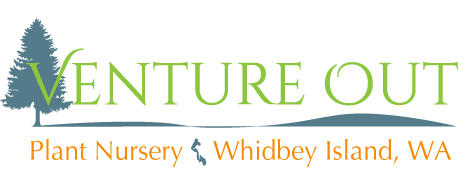Winter Gardening with Pollinators
We gardeners are stewards of the earth. We share our garden not only with plants, but with the many critters that depend on them. This includes pollinators! Many species of insects and birds act as pollinators, including hummingbirds, bees, hoverflies, moths & butterflies, and more. Since pollinators are inextricably linked to food security (so many of the foods we eat require pollination, such as all fruits, beans, squashes and more), we should all be concerned about their health. Many of the choices we make as gardeners can support these creatures. Here are a few simple ways that you can help your local pollinators.
Winter-flowering plants provide food for pollinators
One of the most fun ways to help local populations of pollinators is to include winter-flowering plants in your garden. Though most of these insects hibernate during the cold temperatures, they can awaken and become active on warm days. Having a nectar source is important; it provides nourishment to them. Cheer yourself and feed these little friends with some of these winter flowers. Planting in groups can make it easier for these winged friends to find this food.
Mahonia
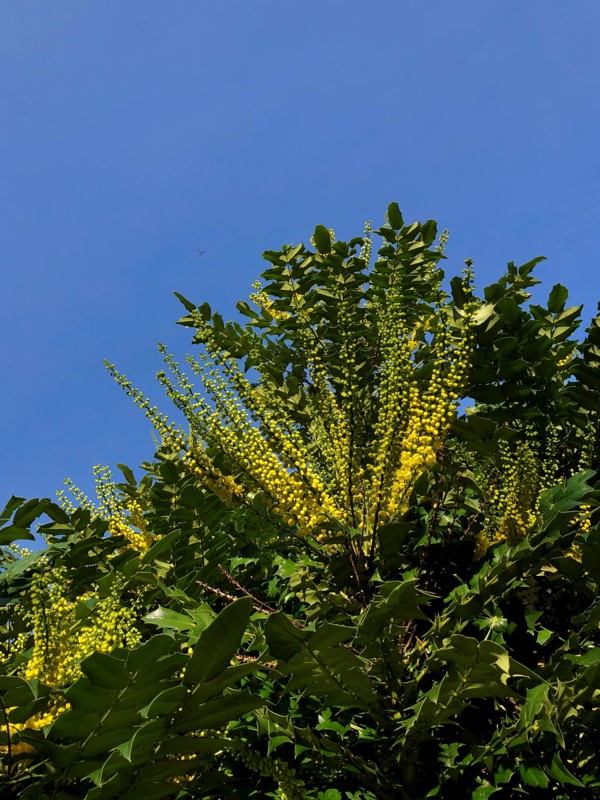
There are several species of Mahonia, or Oregon Grape, that you can plant in your garden. Pictured is the large evergreen shrub Mahonia x media, which is the earliest to flower. No garden should be without one! Their bright yellow flowers in December thru February are loved by hummingbirds and gardeners alike. The best part for Whidbey Island gardeners is that the deer do not love this plant!
Hellebore
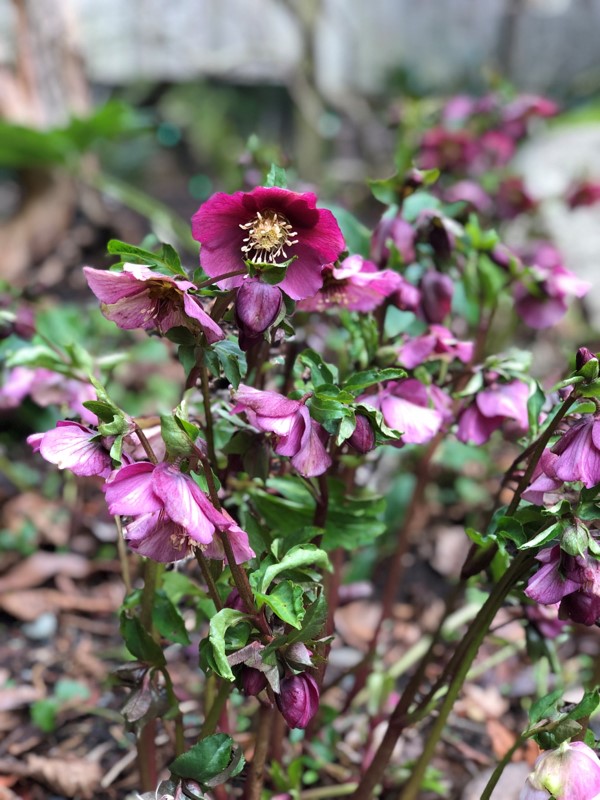
How about another indispensable garden plant?! This easy-to-grow evergreen perennial brings cheer and nectar with its blooms, from December through March in shades of white, cream, pink, red and even black! Another early flowering perennial worth including is Pasque Flower (Pulsatilla vulgaris).
Primrose
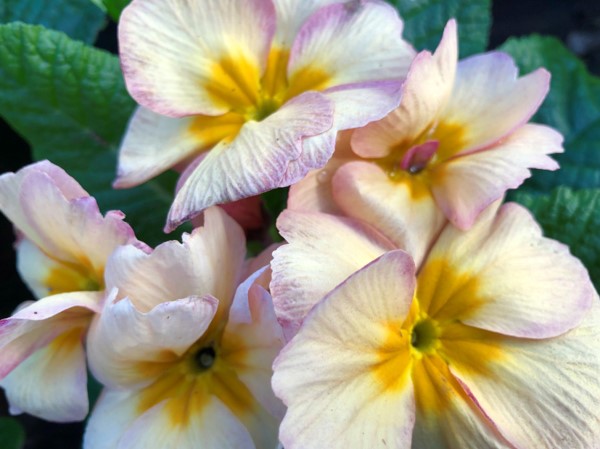
These delightful perennial plants can be tucked in many little spots in the garden. Use them in beds as a groundcover or between deciduous perennials, or plant in pots for a spot of winter and early spring cheer. Other plants like this to include would be Cyclamen & Pansies.
Heather
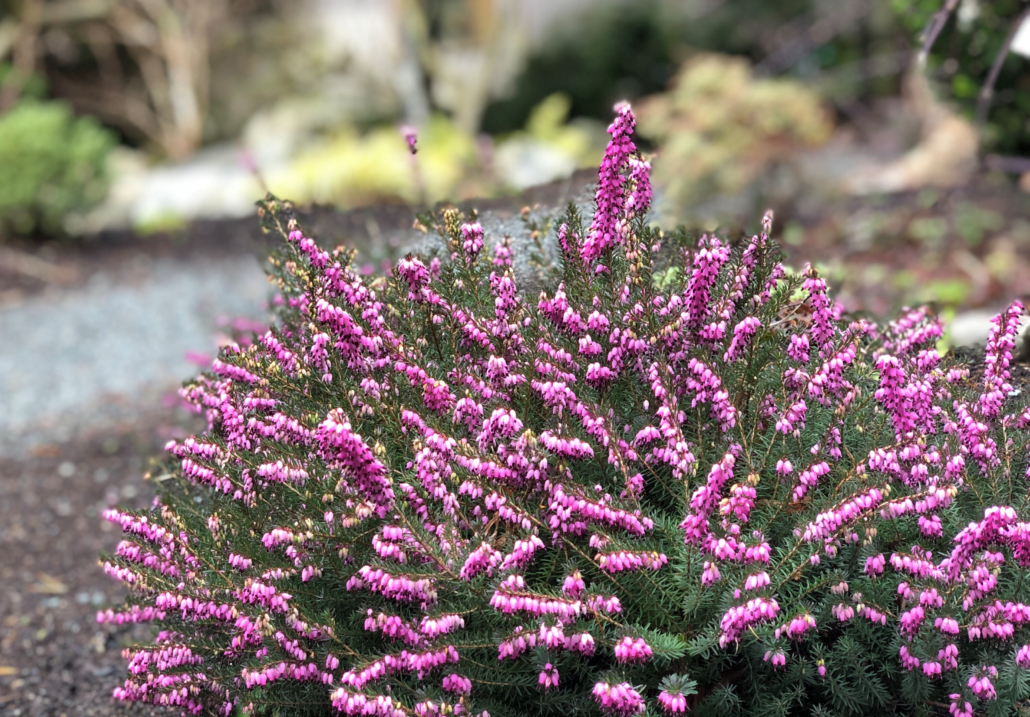
Here’s a true work-horse plant! Heathers and Heaths offer evergreen interest – especially if you choose a variety with golden or silver foliage – as well as flowers from fall through spring. These are drought tolerant and deer-resistant!
Winter & spring flowering bulbs
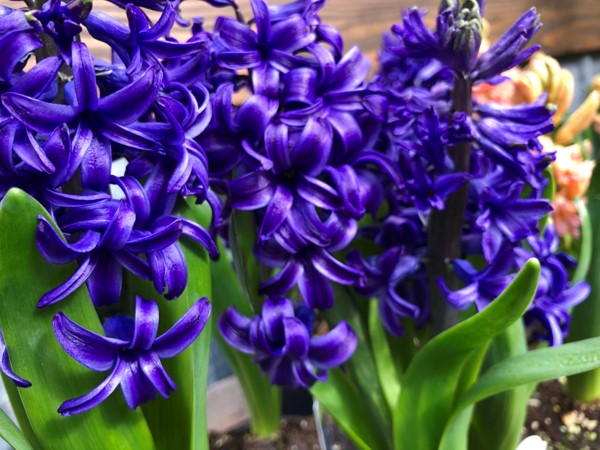
We can’t overlook the contribution that winter & spring flowering bulbs make to the pollinator menu. Well known blooms such as Crocus, Muscari, Dutch Hyacinth as well as lesser-known ones like Snowdrop (Galanthus) and Winter Aconite are fun to include in the garden and offer nectar as well.
Erysimum
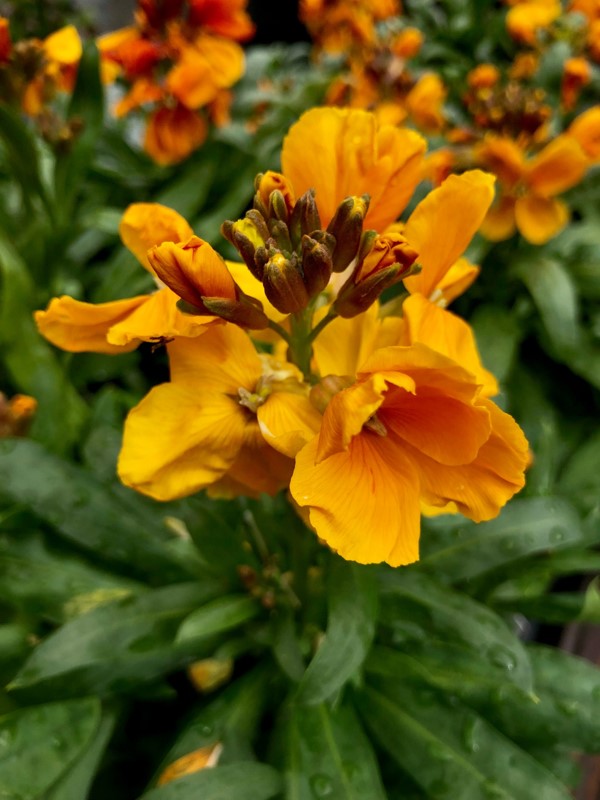
Deliciously fragrant Wallflower (Erysimum) is a treat for the nose as well as the pollinators. These sun-loving, drought- and deer-tolerant semi-evergreen perennials are great for early color in the garden.
Other plants that are not pictured that are great sources of nectar include early flowering trees & shrubs, such as Witch Hazel, Forsythia, Cherries, Plums, Strawberry Trees (Arbutus), Abelia, Daphne, Cornelian Cherry (Cornus mas), Hebe and others.
A “messy garden” is okay with pollinators!
It is okay with many of these creatures if you aren’t a tidy gardener. “Messy gardens” can offer food and shelter. Plants that you didn’t deadhead can throw off the random bloom in the winter, offering a meal to any nectar-lovers flying by.
Loss of habitat is a leading reason for pollinator decline. Our gardens can help offset that loss. Random garden debris, such as leaf litter, spent stems, and curled up bits of bark and branches, offers shelter and nesting spots for overwintering insects. Give yourself a break and help your garden buddies. Instead of raking every bit of debris up, leave a layer of litter and debris in place to compost and to provide this needed habitat.
Only use organic chemicals in your garden
One of the major reasons pollinator populations are in decline across the globe is exposure to harmful chemicals. Make your garden a safe place for bird and insect life (and in turn, many other forms of life) by avoiding toxic chemicals such as Weed and Feed, Preen, Nicotine-based sprays (aka neo-nicotenoids) and other insect killers.
Learn more about pollinators:
- https://www.columbialandtrust.org/species-spotlight-pollinators-of-the-pacific-northwest
- http://xerces.org/pollinator-resource-center/pnw
- https://www.wnps.org/blog/native-pollinators-protection-and-enhancement
Photo credit to Jennifer Reetz.
